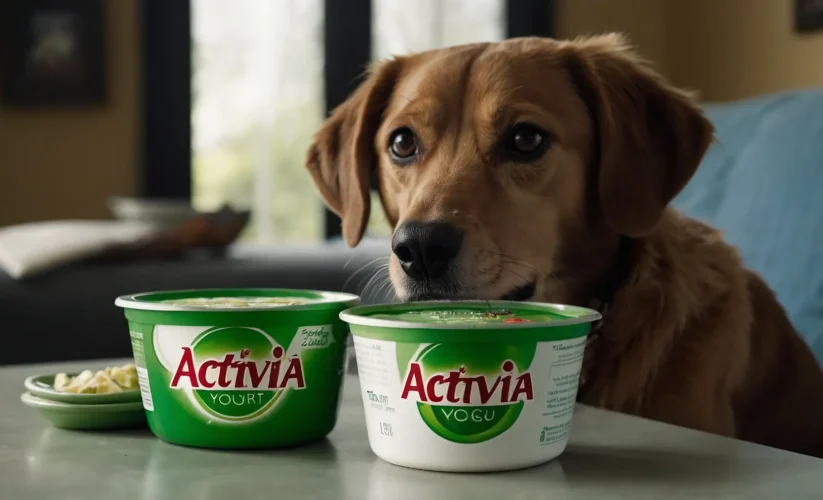Can Dogs Drink Vitamin Water?

In the world of pet care, there’s an ongoing discussion about hydration and nutrition. One question that pops up among dog owners is: can dogs drink vitamin water? It’s a question worth exploring as we aim to provide the best care for our furry companions. In this blog post, we’ll dive deep into understanding what vitamin water is, the nutritional needs of dogs, and the potential risks and benefits of introducing vitamin water into their diet.
Understanding What Vitamin Water Is
Vitamin water is essentially a product that bridges the gap between water and nutritional supplements. It’s crafted to be more appealing than plain water by incorporating a variety of vitamins and minerals, potentially filling the nutritional voids in a typical human diet. This beverage is often seen on shelves alongside other health-centric drinks, promising an array of benefits from increased energy levels to improved overall health due to its enriched contents. The base of vitamin water is usually distilled or purified water, to which manufacturers add vitamins such as B vitamins and Vitamin C, and minerals like potassium and magnesium. To make these drinks more palatable and mimic the sweet taste that consumers often crave, sugar or sugar substitutes are added. In some cases, these sweeteners include alternative options like stevia or erythritol. However, it’s important to note that not all sweeteners used in these products are safe for canine consumption. The variety of flavors and the marketing behind vitamin water cater to human tastes and dietary needs, positioning it as a lifestyle choice for those seeking to boost their intake of certain nutrients. This product’s development and formulation are rooted in addressing human dietary supplementation and are not tailored for pets. Hence, while it might seem like an innovative way to hydrate and nourish at the same time, the specifics of its ingredients and the needs it aims to meet are distinctly human-oriented.
The Nutritional Needs of Dogs
Dogs require a balanced diet that’s quite different from human nutritional needs. Their bodies demand a specific mix of protein, fats, carbohydrates, along with essential vitamins and minerals to thrive. Proteins are vital for muscle growth and repair, fats provide energy and support cell function, while carbohydrates serve as an additional energy source. Vitamins and minerals are crucial for bone health, nerve function, and metabolic processes. Water, beyond being a mere thirst quencher, plays a key role in their diet by facilitating digestion, aiding in the absorption of nutrients, and helping regulate their body temperature. Unlike humans, dogs do not require a varied diet to meet their nutritional needs; a high-quality commercial dog food usually contains all the necessary nutrients in the correct proportions. However, it’s important to consider the life stage, breed, size, and activity level of the dog when choosing their diet, as these factors can influence their specific nutritional requirements. For instance, puppies and lactating mothers have higher energy needs and may benefit from a diet richer in certain nutrients. Conversely, older dogs may require food with fewer calories to prevent weight gain. Always ensure that the chosen diet is well-suited to your dog’s unique needs to promote their overall health and well-being.
Potential Risks of Vitamin Water for Dogs
The allure of vitamin water as a hydrating and nutritious option for dogs is tempered by significant health concerns. Among the ingredients, the inclusion of sugars and artificial sweeteners stands out as particularly problematic. While sugars can lead to unnecessary weight gain and dental problems in dogs, artificial sweeteners, notably xylitol, pose a more immediate danger. Xylitol is highly toxic to canines and can induce liver failure and hypoglycemia, even in small amounts. Beyond sweeteners, the vitamin and mineral content in these beverages can also present risks. Dogs have specific nutritional requirements, and the excessive intake of certain vitamins and minerals found in vitamin water, such as Vitamin A and calcium, can lead to health complications. Excess Vitamin A, for instance, can result in joint pain and dehydration, while too much calcium may contribute to skeletal problems, especially in larger breeds. Additionally, the presence of artificial flavors and colors adds unnecessary chemicals to a dog’s diet, which could lead to allergies or sensitivities. These potential health risks underscore the importance of approaching canine hydration and nutrition with caution, prioritizing water and a balanced diet over trendy human-targeted solutions like vitamin water. By focusing on the unique dietary needs of dogs, owners can avoid inadvertently exposing their pets to harmful substances and ensure their health and longevity.
Can Dogs Benefit from Drinking Vitamin Water?
Exploring the possibility of dogs benefiting from vitamin water requires a nuanced understanding of their nutritional framework. While humans might navigate deficiencies or look for hydration plus nutrition in one bottle, dogs operate on a different spectrum of dietary needs. The premise of vitamin water, rich with added nutrients, might intuitively seem like a boon for canines. However, the formulation of such beverages is intrinsically aligned with human health metrics, not canine. Dogs, when fed a balanced commercial diet, ingest an adequate measure of vitamins and minerals conducive to their health. Introducing an external source like vitamin water could disrupt this balance rather than offering any tangible benefits.
Moreover, the notion that dogs could gain from the supplemental hydration vitamin water purports to provide overlooks the fact that their primary hydration source should always be water—simple, clean, and unadulterated. The essentials of canine nutrition emphasize that if a dog’s diet is deficient in any way, which is less common with high-quality commercial foods, the correction should not come from human-targeted solutions but rather from vet-approved supplements or dietary adjustments.
The question of benefit also intersects with safety, where the risk factors associated with vitamin water, including the potential for toxic sweeteners and the imbalance of certain nutrients, present a compelling argument against its use. Thus, while exploring innovative ways to support our dogs’ health and hydration is valuable, vitamin water does not align with the foundational principles of canine nutrition and safety, rendering it an impractical and potentially risky option.
Understanding the Importance of Water for Dogs
Water serves as the cornerstone of a dog’s health, mirroring its critical role in the lives of humans. For our canine friends, staying well-hydrated is about more than just quenching thirst; it’s a vital component of their overall health regimen. Water facilitates the smooth digestion of food, ensuring that nutrients are efficiently absorbed and transported throughout the body. It’s also instrumental in the regulation of body temperature, especially important for dogs who don’t sweat in the same way humans do. Through panting and the pads of their feet, dogs release heat, and adequate water intake is crucial for this process. Moreover, water aids in the elimination of waste, flushing toxins from the body and promoting kidney health.
Ensuring that dogs have access to fresh, clean water at all times is a responsibility that pet owners must prioritize. This continuous access helps prevent dehydration, which can lead to serious health issues, including urinary tract infections and kidney stones. Dehydration can be particularly dangerous in dogs, as it might not always be immediately obvious. Signs of dehydration include lethargy, dry gums, and excessive panting. Thus, monitoring a dog’s water intake is as crucial as ensuring they have a balanced diet. By understanding and respecting the fundamental role that water plays in a dog’s health, owners can support their pets’ well-being effectively and prevent a range of potential health problems.
Safer Alternatives to Vitamin Water
Exploring healthier hydration and nutrition options for dogs beyond vitamin water opens up a range of safer, more appropriate choices. A vet-approved diet is paramount, and certain adjustments or additions can enhance your pet’s dietary regimen without the risks associated with human-targeted beverages. For owners interested in boosting their dog’s intake of vitamins and minerals, veterinarian-recommended supplements are a viable path. These supplements are designed with dogs’ specific nutritional requirements in mind, ensuring that they receive the right amounts without exceeding safe levels.
Introducing whole foods into your dog’s diet is another excellent alternative. Foods such as carrots, blueberries, and lean meats can provide natural sources of vitamins, minerals, and antioxidants, beneficial for your dog’s health. It’s essential to research or consult with a veterinarian on which foods are safe and beneficial for dogs, as some human foods can be toxic to them.
Hydration, while primarily achieved through water, can also be supplemented with dog-safe broths or wet food. These options not only encourage dogs to consume more fluids but also provide an enjoyable variety in their diet. Wet food, in particular, has a high moisture content, which can help increase hydration levels, especially important for dogs that might not drink enough water on their own.
Incorporating these alternatives into your dog’s diet not only avoids the potential dangers of vitamin water but also promotes a balanced and tailored nutritional intake. Always ensure that any dietary adjustments or additions are made gradually and under the guidance of a veterinary professional to prevent digestive upset and ensure overall health and well-being.
When to Consult a Veterinarian
Navigating your dog’s dietary needs can sometimes feel like treading unfamiliar territory. While the aim is always to provide the best care for your beloved pet, there are moments when professional input becomes crucial. Consulting a veterinarian becomes imperative under several circumstances, including considering significant dietary shifts or confronting uncertainties about your dog’s nutritional adequacy. A vet’s expertise is invaluable, especially when introducing new supplements or alternative hydration sources to ensure they harmonize with your dog’s specific health profile.
Dogs, like humans, have unique dietary needs that vary based on age, size, breed, and health conditions. Implementing changes without professional guidance could inadvertently lead to nutritional imbalances or health issues. For instance, symptoms such as changes in appetite, weight fluctuations, digestive disturbances, or lethargy signal the need for veterinary consultation to rule out underlying nutritional or health problems.
Additionally, if your dog has specific medical conditions such as diabetes, kidney issues, or allergies, a tailored dietary plan crafted by a veterinarian is indispensable. These conditions often require precise nutritional adjustments that only a professional can competently manage. The vet can also provide advice on safe and beneficial whole foods, vet-approved supplements, and appropriate hydration strategies that align with your dog’s health requirements.
Engaging with a veterinarian for regular check-ups or when dietary concerns arise ensures that your dog maintains optimal health. They can offer science-backed recommendations and help you navigate the plethora of dietary options available, focusing on what’s best for your dog’s unique needs. This professional partnership is a cornerstone in fostering a healthy, happy life for your canine companion.
Conclusion and Best Practices
In conclusion, the allure of vitamin water as a beneficial addition to a dog’s diet is quickly dispelled when weighed against the potential risks and the lack of any real benefits for canine health. The key to ensuring the well-being of our pets lies in adhering to the basics of canine nutrition—providing a balanced, vet-approved diet tailored to their specific needs and ensuring that they have constant access to clean, fresh water. Embracing simple dietary solutions and steering clear of human-centric products like vitamin water not only avoids unnecessary risks but also promotes a healthy lifestyle for our furry companions.
When contemplating enhancements to your dog’s dietary regimen, consider safer alternatives that are specifically designed with dogs in mind, such as vet-recommended supplements or the addition of whole foods that are known to be safe for canine consumption. These adjustments can offer the nutritional boosts or variety you may be seeking for your pet, without the drawbacks associated with products not formulated for them.
Remember, each dog is unique, and what works for one may not be suitable for another. As such, any significant changes to your dog’s diet should be undertaken with the guidance of a veterinarian. They can provide personalized advice and support, ensuring that your dog receives the nutrition they need without exposing them to potential harm. By following these best practices, dog owners can foster a nurturing environment that supports their pet’s health and happiness for years to come.










